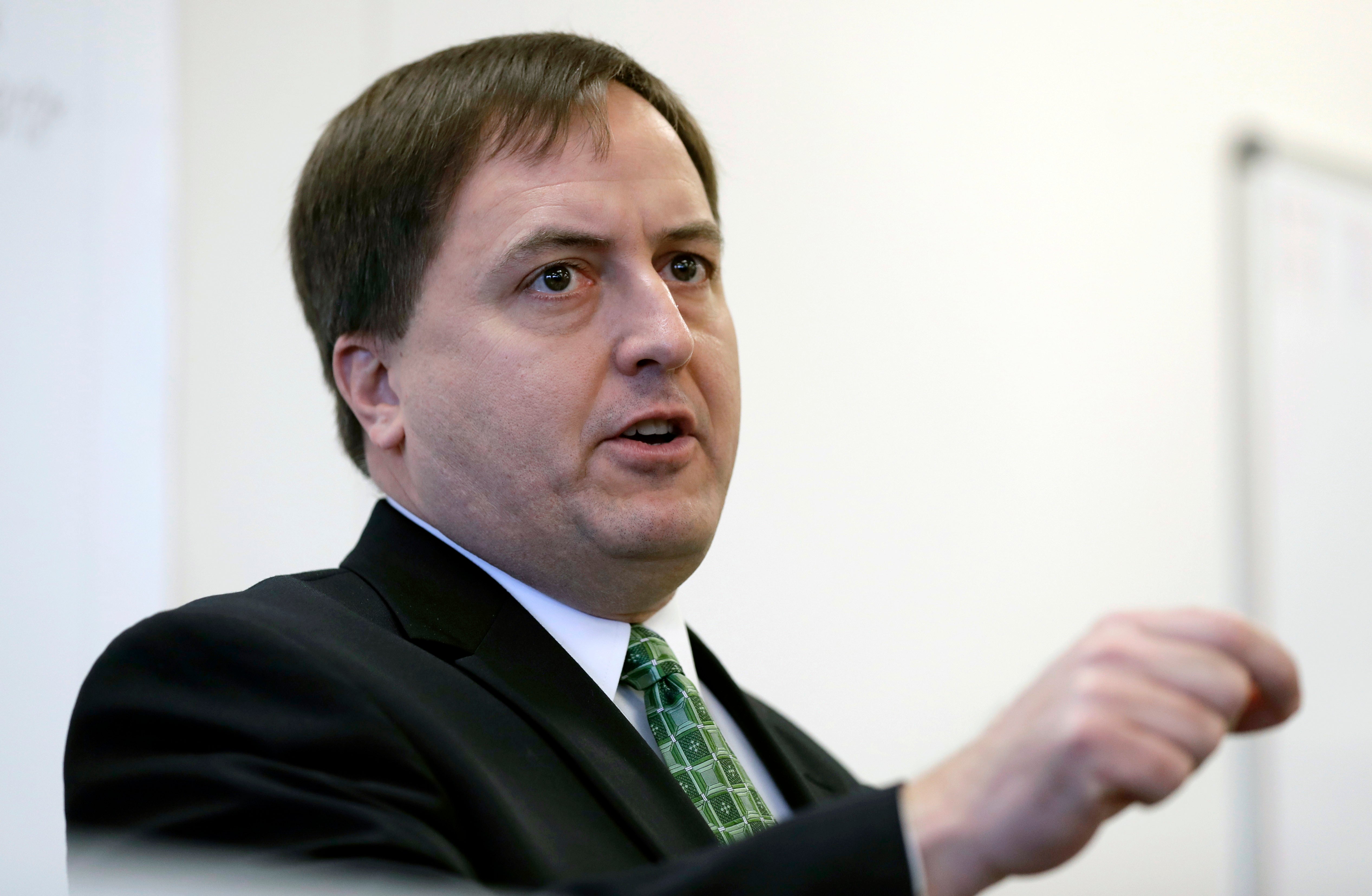Missouri election chief: Redistricting risks election errors
Missouri's top election official is warning that it may be too late to pass new congressional districts for the August primary elections without causing confusion and errors

Your support helps us to tell the story
From reproductive rights to climate change to Big Tech, The Independent is on the ground when the story is developing. Whether it's investigating the financials of Elon Musk's pro-Trump PAC or producing our latest documentary, 'The A Word', which shines a light on the American women fighting for reproductive rights, we know how important it is to parse out the facts from the messaging.
At such a critical moment in US history, we need reporters on the ground. Your donation allows us to keep sending journalists to speak to both sides of the story.
The Independent is trusted by Americans across the entire political spectrum. And unlike many other quality news outlets, we choose not to lock Americans out of our reporting and analysis with paywalls. We believe quality journalism should be available to everyone, paid for by those who can afford it.
Your support makes all the difference.Missouri's top election official on Wednesday warned that it may be too late to pass new congressional districts for the Aug. 2 primary without causing errors that could undermine confidence in the election.
Republican Secretary of State Jay Ashcroft said that even if lawmakers were to approve a new U.S. House map before Friday's deadline to pass legislation, it wouldn't leave local election authorities with enough time to ensure that everyone's voting addresses are accurately assigned to the new districts.
“We’re running the risk of having a good amount of individuals that could end up with the wrong ballot,” Ashcroft told The Associated Press.
He suggested it would be better to hold congressional primaries under current voting districts, though multiple lawsuits contend those are unconstitutional because they are based on the 2010 census and no longer have equal populations.
Missouri is one of only a few states that have yet to enact new congressional districts based on the 2020 census. Though Republicans hold large majorities in the state House and Senate, they have been at loggerheads over how aggressively to draw districts to their favor and which communities to divide.
Republicans currently hold six of Missouri's eight U.S. House seats. Ashcroft had been among those advocating for an approach that would give Republicans a shot at winning seven of those seats. But some GOP legislative leaders feared that could backfire by spreading Republican voters too thin. The debate more recently has focused on efforts to shore up GOP strength in the 2nd Congressional District in suburban St. Louis, the only one which is relatively competitive.
Earlier this week, the House passed another attempt at a redistricting plan that is now pending in the Senate.
Even if the Senate passes that plan, “my concern is that it will turn out to be too late for all the work that has to be done, and I’m afraid it will cause confusion and problems in the August election, and I do not want that to happen,” Ashcroft said.
His concerns were echoed by Shane Schoeller, president of the Missouri Association of County Clerks & Election Authorities.
If the Legislature were to pass a redistricting plan by Friday and Gov. Mike Parson were to quickly sign it, election authorities would have only about one week to make the necessary changes before the state's centralized voter registration system is locked in place on May 25 for the preparation of ballots that must be available for absentee voters in mid-June, Schoeller said.
“If they’re concerned about fair and accurate elections, they cannot pass a map this week and be assured that the congressional districts will be accurate when voters go to vote,” said Schoeller, a Republican who is the Greene County clerk.
The time crunch poses a problem primarily for counties that are split among multiple congressional districts. The latest redistricting plan passed by the state House would split several counties in the St. Louis and Kansas City areas, as well as Columbia's home of Boone County, Webster County to the east of Springfield, and Camden County, which contains part of the Lake of the Ozarks.